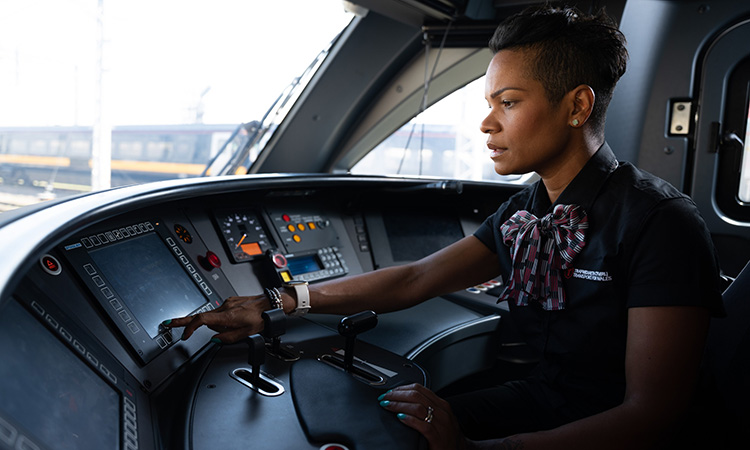TfW reports reduction in gender pay gap through increased female recruitment
- Like
- Digg
- Del
- Tumblr
- VKontakte
- Buffer
- Love This
- Odnoklassniki
- Meneame
- Blogger
- Amazon
- Yahoo Mail
- Gmail
- AOL
- Newsvine
- HackerNews
- Evernote
- MySpace
- Mail.ru
- Viadeo
- Line
- Comments
- Yummly
- SMS
- Viber
- Telegram
- Subscribe
- Skype
- Facebook Messenger
- Kakao
- LiveJournal
- Yammer
- Edgar
- Fintel
- Mix
- Instapaper
- Copy Link
Posted: 11 April 2024 | Intelligent Transport | No comments yet
In a recent report, Transport for Wales has revealed that the addition of 22 more female train drivers in 2022/23 significantly contributed to narrowing the gender pay gap in the rail sector.


In a recent report released by Transport for Wales (TfW), it has been revealed that the addition of 22 more female train drivers during the 2022/23 period had significantly contributed to further narrowing the gender pay gap within the organisation’s rail sector.
The report disclosed that the median gender pay gaps at TfW Rail and TfW Group have decreased to 16.2% and 14.1% respectively, marking reductions of 1.2 percentage points for TfW Rail and an impressive 18.7 percentage points for TfW Group.
Recruitment has been key to equalise the proportion of colleagues at all salary levels. Furthermore, more women have been recruited into higher-salaried roles. In April 2023 there were 76 female drivers (9.3% of all drivers), up from 54 (7.4%) in April 2022. While in 2023, women made up 42.9% of TfW’s new apprentices, up from 14.3% the year before.
MTI research identifies disparities in transit workforce diversity and offers solutions
Marie Daly, Chief Customer and Culture Officer at Transport for Wales, said: “This change has been hard won. We’ve made progress by investing in the leadership training of women at TfW. We’re working with trade unions to ensure that more women become train drivers and engineers. We’re focused on improving women’s wellbeing through menopause workshops and better supporting carers and we’re building wider networks across the industry through initiatives such as Women in Transport.”
Looking ahead, TfW is determined to build on these successes by focusing on further cultural improvements and opportunities for women within the organisation. Among the forthcoming enhancements are plans to publish key performance indicators measuring women’s recruitment, expand secondment opportunities to entities like the Welsh Government and Network Rail, and deepen community engagement to identify and address barriers to employment for women from underrepresented backgrounds.
In addition, efforts to combat unconscious bias through managerial training underline TfW’s commitment to fostering an inclusive and equitable workplace. The move towards a unified TfW operating model provides an opportunity to accelerate progress towards gender equality.
Related topics
Public Transport, Workforce Inclusivity, Workplace
Related modes
Rail
Related countries
United Kingdom, Wales
Related organisations
Network Rail, Transport for Wales (TfW), Welsh Government
Related people
Marie Daly








